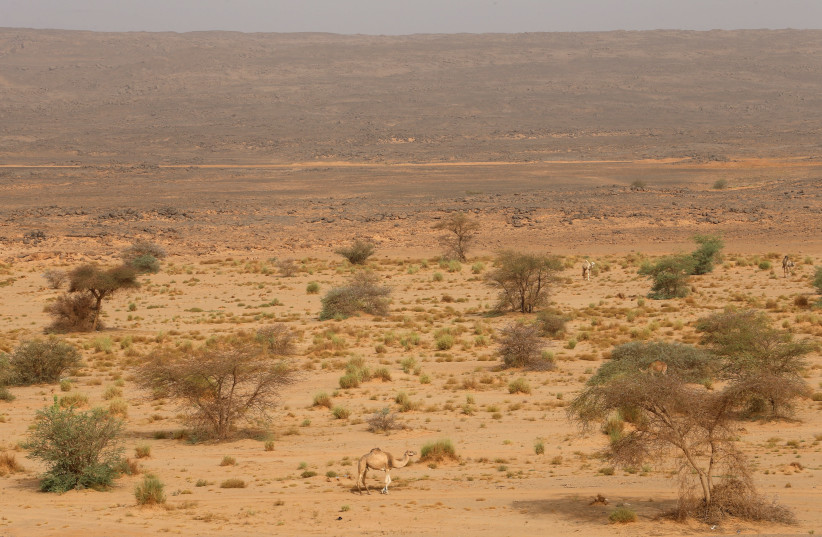President Isaac Herzog and Vice President Kamala Harris announced a joint climate initiative on Wednesday evening.
Herzog is in Washington for meetings with President Joe Biden and other top officials.
The initiative will focus on research and implementation of advanced technological solutions to achieve food security for countries across the Middle East and Africa and includes a $35 million investment over five years by both the United States and Israel.
The cooperation builds upon the US-Israel Strategic High-Level Dialogue on Technology and other science-based initiatives about technology, the environment, food security, and health.
"The last time I was in Israel, I spent some time touring the desalination plants and the work that is happening in Israel, that really is a model for the rest of the globe in terms of how we use the best of innovation in science and technology to preserve some of Earth's most natural and precious resources," the vice president said. "The work you've done has inspired so many here in the United States as well."
Climate-smart agriculture and technology
She said the initiative would specifically center on bringing climate-smart agriculture and technology to the Middle East and the continent of Africa.
"This new initiative will deploy Israeli and American technology to farmers and innovators," Harris said. "And the type of work that we are talking about will range from the deployment of new water efficiency technologies to African farms to the expansion of access to mobile apps, which allow, for example, farmers to monitor crop health and help increase food production."

Herzog has been at the forefront of Israel's climate efforts by establishing the Presidential Climate Forum, which brings together government and public servants, scientists and researchers, entrepreneurs, investors, and civil society activists to help find new solutions to the climate crisis.
Under its umbrella, there is a working group focused on regional collaborations. Earlier this month, a report produced by the forum in cooperation with the Middle East Institute showed that tackling climate change through a regional and global lens could foster increased regional stability, expand Israel's circle of peace and normalization, and provide greater prosperity.
The hope said Harris is that the effort will strengthen cooperation between Israel and its Arab neighbors and other countries in Africa.
"The US-Israeli partnership on this issue will help make all of this work a reality for farmers across the continent of Africa and throughout the Middle East, and our joint investments in the Middle East will help to strengthen the cooperation between Israel and its neighbors," she added.
Israeli officials see Africa's Morocco as the regional partner with the most potential for climate and environmental cooperation, specifically in renewable energy, water, agriculture, fishing, and desertification.
Last November, Israel's national water company, Mekorot, signed a memorandum of understanding in the fields of drinking water and liquid sanitation with Morocco's National Office of Electricity and Drinking Water (ONEE). In May, Economy Minister Nir Barkat visited the country to attend SIAM, the largest international agricultural exhibition in Morocco and one of the largest in Africa.
In March, Israel hosted a group of African agricultural experts, some of whom have no diplomatic relations with Israel, to help combat desertification and drought in the Sahara region. Two months later, Haim Taib's Mitrelli Group hosted a delegation of around 500 African representatives, including senior officials, to discuss how Israeli innovation could power the continent.
"We have to take advantage of Israeli advances in agriculture," said Dr. Vaflahi Meite, director-general of economic diplomacy, Ministry of Foreign Affairs, Regional Integration and Diaspora, from the Republic of Côte d'Ivoire at the time. "We know Israel was a desert only 75 years ago, and today it is green... Cote d'Ivoire is also arid, and we can benefit from learning from Israel."
Herzog said Wednesday, "I truly believe that climate cooperation can be a major factor in realizing this vision of a 'Renewable Middle East' that supplies energy and enables nations to have food and water and an ability to function under such complicated circumstances of the global climate challenge."
The Environment and Climate Change portal is produced in cooperation with the Goldman Sonnenfeldt School of Sustainability and Climate Change at Ben-Gurion University of the Negev. The Jerusalem Post maintains all editorial decisions related to the content.
